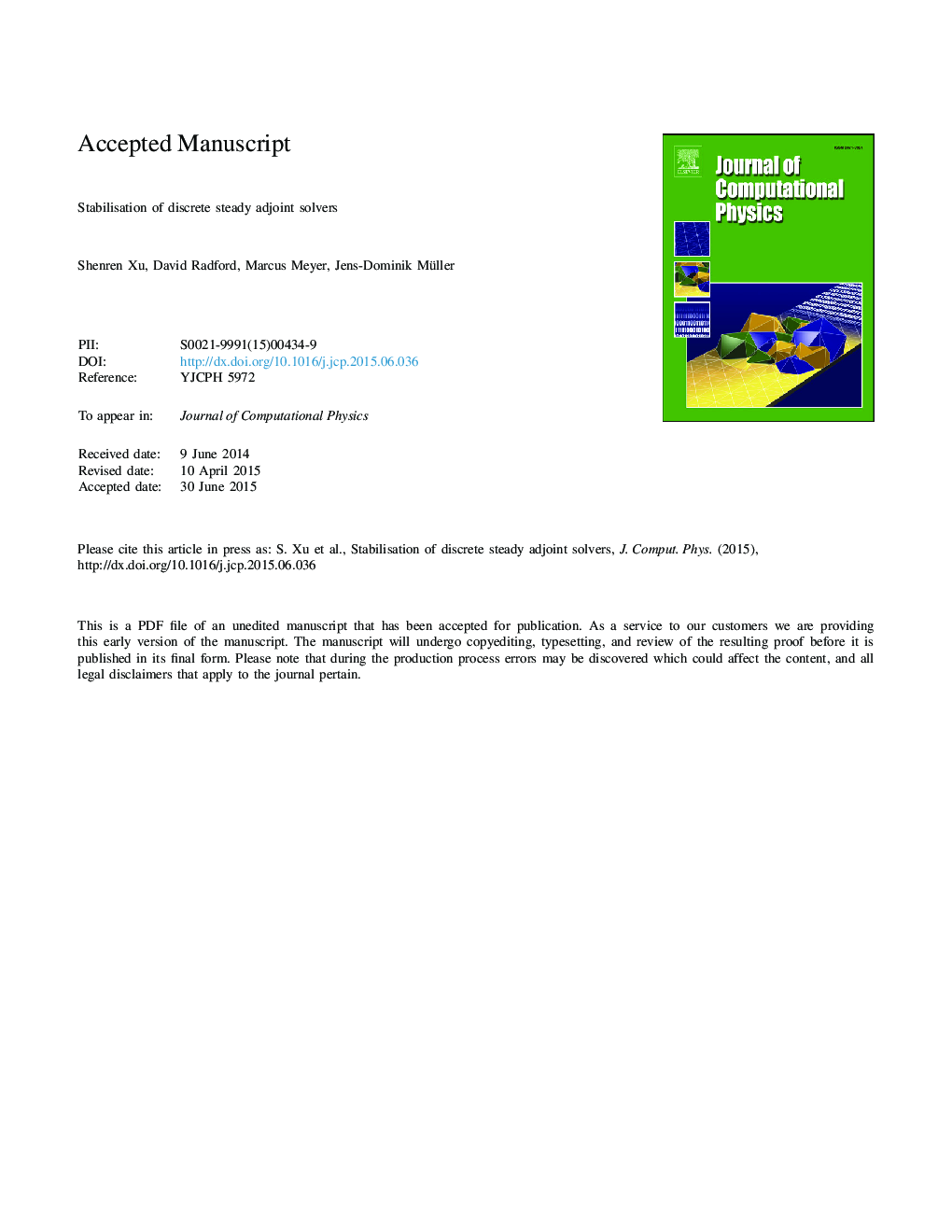| Article ID | Journal | Published Year | Pages | File Type |
|---|---|---|---|---|
| 6931074 | Journal of Computational Physics | 2015 | 38 Pages |
Abstract
A new implicit time-stepping scheme which uses Runge-Kutta time-stepping and Krylov methods as a smoother inside FAS-cycle multigrid acceleration is proposed to stabilise the flow solver and its discrete adjoint counterpart. The algorithm can fully converge the discrete adjoint solver in a wide range of cases where conventional point-implicit methods fail due to either physical or numerical instability. This enables the discrete adjoint to be applied to a much wider range of flow regimes. In addition, the new algorithm offers improved efficiency when applied to stable cases for which the conventional Block-Jacobi solver can fully converge. Both stable and unstable cases are presented to demonstrate the improved robustness and performance of the new scheme. Eigen-analysis is presented to outline the mechanism of the adjoint stabilisation effect.
Related Topics
Physical Sciences and Engineering
Computer Science
Computer Science Applications
Authors
Shenren Xu, David Radford, Marcus Meyer, Jens-Dominik Müller,
